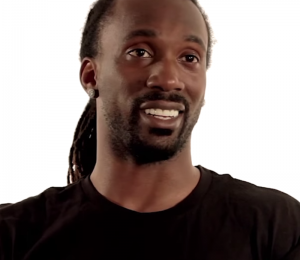These days have become an important litmus test for white evangelicals in America. How worldly are we? How desensitized have we become, not only to sexual immorality, but to ethnocentrism, partiality, and pride? Has the love of Christ shaped our souls deeply enough that we “look not only to [our] own interests, but also to the interests of others” (Philippians 2:4)? Do we have the mind of Christ to truly care for and extend love to those who are different from us?
We have neighbors and coworkers — even friends and family — who are not just disappointed or sorrowful over the presidential-election results, but also genuinely afraid. I don’t mean just the abstract, unrealistic fear of the candidate on the other side of the spectrum from you. No, this is anxiety born directly from specific comments that singled out race or gender. It is personal.
Personally Vulnerable
Muslims remember the president-elect’s declaration a year ago that they should be made to carry identification cards. They remember when his campaign said they should be given a religious test to enter the United States. They remember sitting with a growing sense of isolation and rejection as he and his campaign pressed repeatedly on the threat they pose to America.
Women who have been sexually harassed, assaulted, or abused see a man who has joked about these things now elevated higher in power despite it all. Women who have struggled all their lives for respect in their professions and communities have seen large segments of the nation embrace, applaud, and elect a man who treats women as mere objects and mistresses.
Disabled, sick, and suffering people who have found themselves depending on the Affordable Care Act to avoid losing health coverage know that one of the new president’s first acts will be to repeal that coverage. Many have found the new system to be a financial strain or a headache, but many Americans have also found it provided vital health care they weren’t able to obtain before (or prevented them from losing their coverage). The idea of stripping healthcare away wholesale (whether that’s realistic or not) is terrifying to someone who is seriously ill or handicapped.
Jews and African Americans have felt subtle and sometimes not-so-subtle finger-pointing from the president-elect and his campaign. They have seen hate groups opposed to their very existence come out of the woodwork and latch onto his campaign — mostly without any public discouragement or rebuke from him. They have seen him and his campaign repeat in tweets and ads echoes and hints of conspiracy theories long used to blame them for the ills of our society, theories that have fueled violent racism and abuse toward them in the past.
Some of us may think that the connections between some of these incidents aren’t that serious or plausible. But we aren’t the ones the arrow is pointing at. It feels different when everything seems stacked up against you. That’s what those who don’t feel personally threatened urgently need to understand. Whether you believe the president-elect’s reckless and careless words and associations really reveal a racist intention or not, your neighbors in all of these groups are reasonably fearful that they do. I have friends in all of these groups who have shared their fear and dread, asking for support, in the past 24 hours.
Hurt with the Hurting
“Evangelical Christians” are being “credited” with being a large part of the support that got him elected. How we treat the people that are anxious and afraid over this new presidency will reveal how much like Jesus we really are.
One of the central teachings of Christianity is to love your neighbor as yourself (Matthew 22:37–40.) The Bible exhorts us to “weep with those who weep” (Romans 12:15); it doesn’t lead with telling us to “judge whether they should be weeping,” says pastor H.B. Charles, Jr. The same is true for those in fear. We don’t have to agree with the intensity of their fear in order to empathize with them. Compassion doesn’t require us to be convinced another person is entirely correct. It requires us to care about how he is feeling. Even if you think the danger won’t come to pass, the fear is certainly real.
My daughter was sobbing Tuesday night as the election results came in because she was scared for her Muslim friend. I have heard from other friends who had similar experiences with their kids the morning after. More than likely, nobody taught these kids directly to be afraid of the president-elect. They’ve simply heard what he’s said and seen how it affects their friends. They are drawing intuitive, logical conclusions. Sometimes kids are afraid of things that we think they don’t need to be afraid of, but that doesn’t mean that we should ignore the fact that they are afraid. This is real, and this is serious.
Share the Load
It should break our hearts that the election of this man is making our fellow citizens and our children fear for their safety. If we understand that we must weep and empathize with someone in depression, even when they appear to have nothing specific to be depressed about, we should get that we need to mourn with those in fear even if we don’t fully share their fears.
If we see a dear friend struggling and staggering with a heavy load of groceries out of the back of his car, is our first instinct to say, “That isn’t a load you should be carrying”? Hopefully not. Let’s hope that our first response is to run over and grab part of the load to help lighten the burden.
And so it should be with emotional care for a friend. Our first reaction should be to try to come beside them, to lift up our friend, to help bear the burden of their fear or grief. “Bear one another’s burdens, and so fulfill the law of Christ” (Galatians 6:2). Perhaps a time will come later to discuss some of the underlying assumptions, and possibly grow together in our perspectives. Or maybe time will show that their worry did not become reality. Or perhaps time will tell that our own lack of fear was naïve. But for now, what is needed is sensitivity, listening, tenderness, compassion, and a demonstration of love and genuine concern.
Reinforce Your Support
Let’s reassure our neighbors that we will stand with them. Right now it is vital for people in any of these affected groups to hear this. Especially from Christians, who (like it or not) are portrayed as having been instrumental in the president-elect’s rise to power.
Our neighbors need to know that, using whatever influence we do have, we are going to be sure to use it to see that they are protected and treated fairly and equally. They need to know we aren’t against them, and we won’t forget about them or turn on them. People need to see firsthand that the true people of God care for them and love them, just as Christ loved them and gave himself for them.
Pray for Them
And finally, pray for them. Pray for their comfort and peace. Pray for reconciliation and harmony between all of us. Pray that God will direct the president-elect so that he does not reflect the words and fears above, but instead serves all Americans alike. Let us not leave the spiritual state of his presidency up for grabs. Instead, let’s seek its transformation in prayer. To this God has called us:
I urge that supplications, prayers, intercessions, and thanksgivings be made for all people, for kings and all who are in high positions, that we may lead a peaceful and quiet life, godly and dignified in every way. This is good, and it is pleasing in the sight of God our Savior, who desires all people to be saved and to come to the knowledge of the truth. (1 Timothy 2:1–4)




